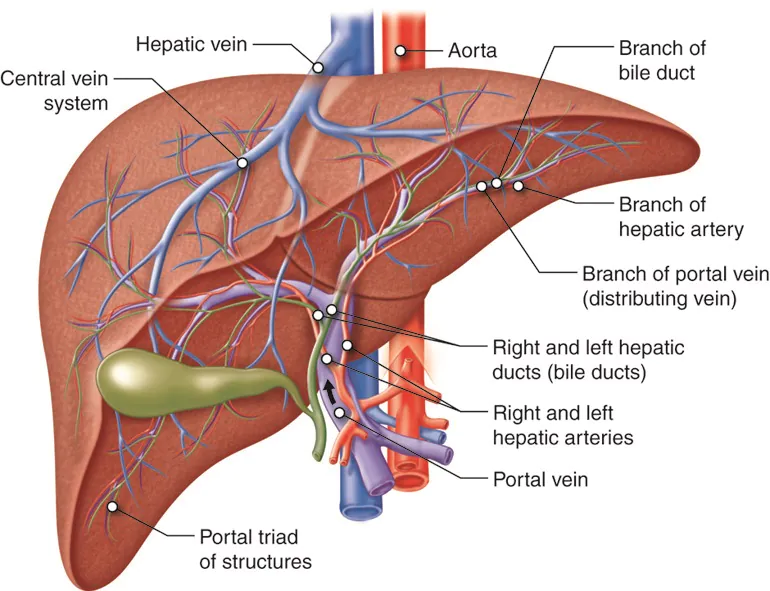Hepatology is a branch of medicine focused on the liver, gallbladder, bile ducts, and pancreas. It addresses the diagnosis, treatment, and management of liver-related conditions. The liver plays a key role in removing toxins, regulating metabolism, and assisting in digestion, making hepatology fundamental to maintaining overall health. But what does a hepatologist do, and why might you consult one?
What Conditions Do Hepatologists Treat?
Hepatologists specialize in managing a variety of liver-related ailments. These include chronic liver diseases such as hepatitis B and C, which are caused by viral infections that damage the liver over time. They also treat conditions like Nonalcoholic fatty liver disease (NAFLD) and Pancreatitis. Hepatology specialists address end-stage liver disease and are also well-versed in diagnosing and managing liver cancer. Their primary focus is treating existing liver conditions and preventing further damage, laying a strong foundation for healthcare maintenance.
How Do They Diagnose Liver Diseases?
The role of a hepatologist often starts with diagnosis. Patients may consult a hepatologist due to symptoms like jaundice (yellowing of the skin and eyes), unexplained weight loss, abdominal pain, or fatigue. Advanced diagnostic techniques allow hepatologists to pinpoint liver conditions with precision.
Patient Evaluation
The patient evaluation process begins with a comprehensive physical examination. Hepatologists assess for visible signs of liver dysfunction, such as jaundice, abdominal swelling, or tenderness. This step may also include an evaluation of the patient’s overall health to identify symptoms that could indicate underlying liver issues.
Medical History
Hepatology specialists review the patient’s past and current health records, including any history of alcohol use, medication intake, viral infections, or genetic predispositions. They also inquire about lifestyle factors, such as diet and exposure to toxic substances, that may contribute to liver conditions. This detailed history helps to form a holistic understanding of potential causes and risks.
Diagnostic tests
Hepatologists use a variety of diagnostic tools, including:
- Liver Function Tests assess enzymes and bilirubin levels to determine liver health.
- Fibroscans check scar tissue or stiffness in the liver in a non-invasive manner.
- Imaging techniques like CT, MRI, and ultrasound provide detailed visuals of the liver and nearby structures.
- Liver biopsies, which involve taking a small tissue sample, are key for identifying diseases like liver cancer or cirrhosis.
- Endoscopic procedures allow hepatologists to examine digestive structures and identify complications that stem from liver issues.
By combining these tests, hepatologists develop a detailed picture of liver health, helping to guide appropriate treatment.
What Treatments Do They Provide?
Hepatologists utilize a wide range of medical interventions to manage liver conditions. Their treatments address both the cause of the disease and its symptoms, supporting a comprehensive management approach.
Therapies may involve prescribing medications for hepatitis, immunosuppressants for autoimmune-related liver conditions, and targeted drugs to manage complications. These medications play a key role in slowing disease progression and preventing organ damage. Hepatologists often emphasize lifestyle changes to enhance liver health. Adjustments such as maintaining a healthy diet, limiting alcohol intake, following a weight management plan, and achieving proper hydration are helpful for improving liver function and preventing further damage.
For patients with advanced liver diseases, specialized interventions are often required. These may include endoscopic procedures and liver transplant management.By employing these treatments, hepatologists offer well-rounded, effective care tailored to every stage of liver disease.
Learn More About Hepatology
Hepatologists are key to maintaining liver health. They offer expert care in diagnosing, treating, and managing a wide array of conditions. Whether it’s addressing complex liver diseases, providing cancer care, or guiding preventive strategies, they play a key role in making sure patients lead healthier lives. If you have symptoms or a family history of liver disease, consult a hepatologist who can provide the guidance and care needed to safeguard your health.
- Choosing the Right Plastic Surgeon for Your Cosmetic Procedure
- Understanding Different Types of Laser Treatments for Skin Rejuvenation
- Why a Family Dentist is Key for Maintaining Oral Health
- The Benefits of Regular Visits to a Wellness Spa
- Exploring the Emotional and Psychological Triggers of Eating Disorders


Leave a Reply